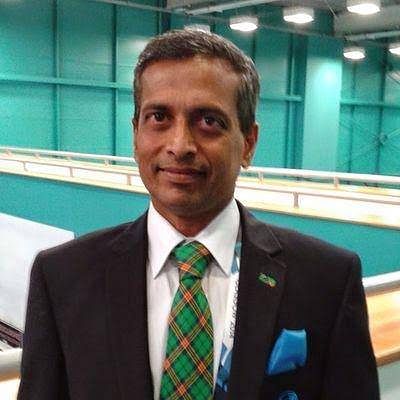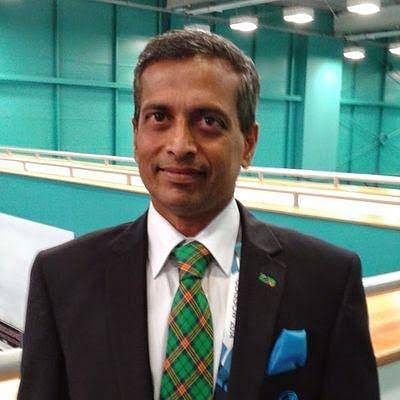
Srikanth Seshadri's dream journey in the sport of squash

The South Asian Games 2016 not only provided some historic moments for Indian squash, it also proved to be a special occasion for Srikanth Seshadri, the Competition Director for Squash. Having had the experience of being in charge of squash events at the national level earlier, the Guwahati & Shillong Games provided him the opportunity to make his debut at the international level.
Such was the dedication of this Erode native, whose foray into this sport is in itself an interesting story, that he had visited the play site in Guwahati a month earlier to the competition proper. He had to be convinced that the arrangements in the D G Baruah complex was perfect because it was a newly laid facility for the Games. Srikanth even conducted a test-event to ensure everything was in place and the courts too played true.
"Everything went off smoothly," Srikanth said with a touch of satisfaction at the end of the squash events in the Games. Even though he thought the conduct of some national championship demanded a lot more attention to detail, squash competition in the Games was comparatively less cumbersome but still required skillful handling to ensure smooth conduct and overall satisfaction to all, he felt.
In a way seeking high standards is nothing new for this serious student of the sport. Srikanth’s demeanour and his stern attitude go well with the requirement of squash officiating and that is what drew him closer to this sport. But then his dalliance with squash began in a curious way. An engineer by qualification and a businessman by profession, Srikanth's initial pursuit was to put his son into squash training particularly after he had heard of the Indian Squash Academy(ISA), a new-generation squash facility that came into existence in Chennai.
The son, ten years old then, was into tennis when his father decided on this shift. That was around 2005 when things were only beginning to happen in ISA, easily a nerve-centre of squash now in India with most of leading players doing duty for the country now emerging from there.
So enamoured was he seeing the facilities in ISA, Srikanth nursed a desire to be part of the working group there. All he had was the knowledge of the sport as a club-level player and his keen interest. When he ultimately got the opportunity to assist the coaches, his new career took roots. Grasping the nuances was easy and with his good communicative skills in English and a no-nonsense approach to things, Srikanth was lured away to refereeing where, his mentors felt, he had better ways to grow. The dream began there as he rose from a referee to do international matches by 2007 and in four years he had progressed to become a WSF Referee with wide commendations.
Srikanth has already visited several countries in Europe and Asia as part of his refereeing assignments apart from various places in India.
"I believe in being stern where required and firm in interacting with the players on court," he said pointing to the positives that have helped him develop into a quality official. Conducting a tournament was another window opened to him at the national level. After successfully organising national championships, the SAG 2016 helped him add one feather to his growing achievements in the sport.
Just 50 and many more useful years in the sport, Srikanth is clearly enjoying his new-found enthusiasm and his job. "But for this I am indebted to the Squash Racket Federation of India(SRFI) and Mr N. Ramachandran, the patron of SRFI and the man behind the coming up of the ISA. But for their encouragement this new journey would never have been there," he said, while also acknowledging the big role of his family. "My brother and I run a garment manufacturing unit in Erode but he has taken added responsibility and has been encouraging me to continue in squash," he said of the support.
Srikanth is not sure where squash is going to take him along but for the moment he is happy that he is able to witness and officiate top grade competitions involving some of the best practitioners of the sport. " Of course I do not try to be too stern with them. Situations are different. They need to be handled differently. I am learning the skills of diplomacy thanks to such class players. And that is another benefit of moving with such exalted company," he quips with a smile.